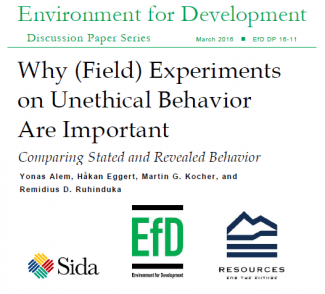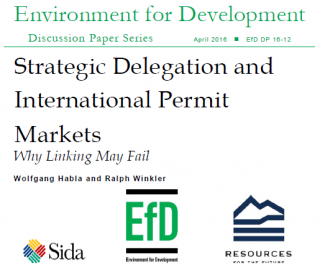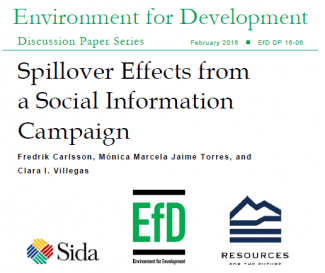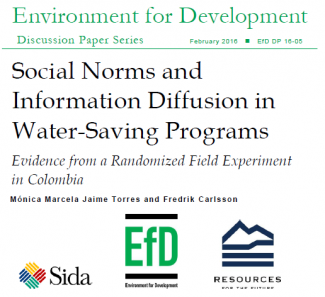FILTER
Displaying 61 - 70 of 409 publications
Abstract: In Rwanda, rural water supply is not uniformly distributed. Rural areas are characterized by differences in the distance to the nearest water point and in water quality for domestic water…
| Peer Reviewed | SwedenAbstract: This paper demonstrates that unintended effects of climate policies (Green Paradox effects) also arise in general equilibrium when countries compete for mobile factors of production (capital…
| Discussion Paper | SwedenAbstract: In this paper, we acknowledge that the mitigation of and adaptation to climate change have differential fiscal impacts. Whereas mitigation typically raises fiscal revenues, adaptation is…
| Discussion Paper | SwedenAbstract: In this paper, we examine the relative influence of individual decisions on joint household decisions, and whether and to what extent joint choices are more or less patient than individual…
| Peer Reviewed | China, SwedenUnderstanding unethical behavior is essential to many phenomena in the real world. The vast majority of existing studies have relied on stated behavior in surveys and some on incentivized experiments…
| EfD Discussion Paper | Sweden, Global HubAbstract: We analyze a typical principal-agent relationship in the context of international climate policy, in which the principals of two countries first decide whether to merge their domestic…
| EfD Discussion Paper | SwedenWe investigate whether a social information campaign aimed at reducing water use causes a spillover effect on the use of electricity. On average, water use decreased by 6 percent for a treatment group…
| EfD Discussion Paper | Chile, SwedenThis paper investigates direct and spillover effects of a social information campaign aimed at encouraging residential water savings in Colombia. The campaign was organized as a randomized field…
| EfD Discussion Paper | Chile, SwedenWe use rich survey data to investigate the economic impact of a climate-friendly rice farming method known as the system of rice intensification (SRI) on the welfare of rain-dependent small-holder…
| Peer Reviewed | Sweden, Ethiopia, Global HubAbstract: In this paper, we analyze water demand by urban households in Rwanda who currently lack a piped connection into their home. The analysis uses data from a cross-sectional survey. The results…
| Peer Reviewed | Sweden


